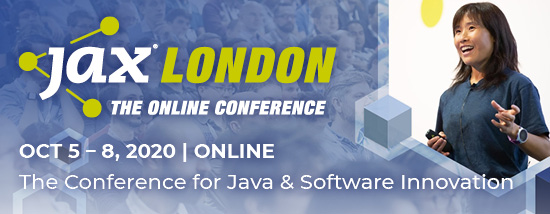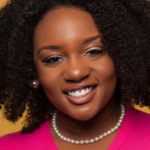A research study by The National Center for Women & Information Technology showed that “gender diversity has specific benefits in technology settings,” which could explain why tech companies have started to invest in initiatives that aim to boost the number of female applicants, recruit them in a more effective way, retain them for longer, and give them the opportunity to advance. But is it enough?
Four years ago, we launched a diversity series aimed at bringing the most inspirational and powerful women in the tech scene to your attention. Today, we’d like you to meet Sarah Stemmler, Freelance coach for Data Science.
Today’s woman in tech: Sarah Stemmler, Freelance coach for Data Science

Sarah Stemmler
Sarah is a Data Science coach and freelancer on Malt. With synsugar she offers training for Data Science teams and project workshops. She already has over 4 years of experience as a Data Scientist and has designed and guided customer projects into rollout several times. On the side, Sarah is co-organizer of the tech meetup League of Geeks in Passau. In her free time, Sarah enjoys sports, either hiking in the mountains or rock climbing.
What first got you interested in tech?
In fact, I already had an access to technology as a child. My father had a repair shop for digital cameras and printers. We probably always had the latest electronics and lots of tools in the basement. When I was 12, I got a cell phone, which was a very modern model from Siemens at the time. But I didn’t like the look of it at all. So I simply took it apart and replaced the keypad and the casing with those of another device. In retrospect, this was a rather risky action. Fortunately, the phone was still working after that, otherwise I would have been in trouble for sure.
How did you end up in your career path?
After a traumatic experience with computer science at school, I didn’t want to have anything more to do with this subject. I had checked off everything to do with the sciences as “not my thing”. I studied business administration with a focus on sports management since I played golf as a competitive sport in my youth. My dream was to become a golf club manager. However, an internship in this field didn’t really convince me.
Women tend to gravitate toward occupations where they know in advance that they have the skills they are looking for.
After graduating with a bachelor’s degree, I worked for my father in the repair shop for a while. Then I did another internship, this time in marketing at the confectionery manufacturer Ferrero. And so I came to Passau via marketing to study for a master’s degree. At the University of Passau, it was mandatory to take two courses in statistics.
Sports management and statistics don’t have that much in common, so I had to study hard at first. I had subjects like econometrics or panel data analysis and learned to analyze data using the programming language R. The beginning was definitely not easy, but at some point it clicked and I really enjoyed these subjects.
That’s how I got an internship at an IT service provider in Passau via my master’s thesis in statistics. Pretty quickly, I was given responsibility for my own customer projects and was able to gain experience analyzing the company data. Along the way, I went from being an intern to a working student and, a short time later, one of the first Data Scientists within the company. I worked in the IT company as a Data Scientist for almost 5 years. When I started, we were a startup with around 30 employees. When I left the company this February, there were already 150 people. Experiencing this development was a great enrichment for me.
Did you receive support from your family and friends?
There is a woman who paved my way into Data Science. This woman is the former supervisor of my master thesis at the statistics department at the University of Passau. Her name is Angelika, and at the time, she was a PhD student in statistics. In the beginning, the idea of writing my thesis at the statistics chair was not completely serious.
I was a career changer with a wild resume who had suddenly discovered her interest in statistical modeling. My fellow students thought I was crazy to take such a big risk at the end of my studies. After all, not only was the subject of statistics feared, but the chair was known for high-quality standards. Angelika was directly taken by my cautious request and immediately had some ideas in which direction the work could go. This inspired and at the same time encouraged me, because Angelika’s CV was as similarly colorful as mine.
In the end, I successfully completed my master’s degree with an extremely interesting and challenging final thesis. Angelika became my colleague and is now one of my best friends. I am very grateful to her for many things.
Did someone ever try to stop you from learning and advancing in your professional life?
I can’t say that I have experienced that. On the contrary, I always had people around me who supported my steps. For example, my first boss at the IT company, who gave me the chance to try my hand at Data Science early on. From the very beginning, I felt his trust and was happy to take responsibility for customer projects.
My parents have also always supported me, although when it comes to data analysis they probably don’t understand in detail what exactly I do and what my daily work routine looks like. And last but not least, the support I get every day from my boyfriend Sebastian. He actively supported me, especially when I decided to become self-employed, and is always there to help me.
Where and as what do you work at the moment?
Since March 2020, I have been working as an independent consultant and freelancer in the Data Science field. Currently, I am still in an experimental phase, as I don’t yet know exactly what the market needs in terms of what I can offer. Also, I am doing some things for the first time, such as sales, accounting to social selling on channels like LinkedIn.
My goal in the first year is mainly to gain a lot of experience and then use the experience to develop a useful portfolio of services that will help companies in the long term. I also don’t rule out developing into a company with employees. If it develops into that, I will certainly try it out.
What have you developed?
At the moment I am developing workshops and consulting services in the area of Data Science. For this, I support my clients in two areas of Data Science: One is the identification and conception of meaningful and actionable AI use cases.
I also offer support for building Data Science teams. I see both of these as essential when companies want to dedicate themselves to the topic of data analysis and artificial intelligence. In the long run, it makes sense to build up data skills in a company and be able to implement projects independently.
In addition, I am currently working with two other data science consultants on a coaching concept to improve collaboration between business and tech teams in the company. But I can’t reveal much more at this point.
Why aren’t there more women in tech?
I keep asking myself this question and have not yet been able to find the right answer. Even in my sports management studies, there were hardly any women and the course had nothing to do with tech at all. In comparison, I was very surprised at how many women we were able to recruit for our data science team at my former employer. We actually had a 50:50 distribution. The collaboration between men and women was excellent and everyone was accepted and valued.
The cooperation between men and women was excellent and everyone was accepted and appreciated.
There is no general answer to this question anyway. However, I think that women are more inclined toward professions where they know in advance that they have the skills they are looking for. The requirements described in many job advertisements for technical professions have a deterrent effect. This can make people feel insecure. While men tend to overestimate themselves, women are much more likely to underestimate themselves. Many women do not apply for a job or a place at university where they feel they cannot meet the requirements.
Could you name a few challenges women in tech face?
Women in tech are now being promoted in a big way, which is understandable given the weak quota. However, I believe that many successful women in tech professions feel even more pressure as a result. They want to prove to their male colleagues that they are rightly in this position and that it has more to do with their performance than their gender. If a women’s quota were ever up for discussion in tech, I’d probably be against it. Even if it would have the effect of getting more women into tech jobs in the short term, women would be subject to the stereotype of being profiteers of a quota. I don’t think that would solve the problem in the long term.
Can you tell why more women should consider working in the tech industry?
Women in IT teams, as in all other professions, are extremely important because mixed teams create a better balance. Women simply think and act a little differently than men. They often have different approaches to communicating with people and solving problems. Why that is, I can’t say. In any case, a heterogeneous, perhaps even interdisciplinary team helps to create more innovations in the company. And to be honest, working in diverse teams is also a lot more fun.
In the future, tech skills will also have to be taught increasingly in schools[…]
On the other hand, more women should work in tech because there are also many advantages. For one thing, there are a lot of exciting and future-proof jobs in this field, and for another, jobs in IT are even very compatible with family life. Ultimately, we in IT are all knowledge-based workers; the most important asset is in our heads. All we usually need is a PC and fast Internet. If we have that, we can do our work from anywhere in the world. So this also makes it possible to combine job and family, for men as well, by the way.
The discussion about diversity is gaining momentum. How long will it take to see results from the current debate?
I think the debate will be with us for quite a while. It would probably be necessary to revolutionize the school system and provide even more insight into the various professions in order to chase the off-putting stereotypes out of people’s heads. On the other hand, things will become even more technical in all professions, even outside of IT. Our entire lives are simply becoming more technical. I’m pretty sure that schools will have to teach more tech skills in the future.
What advice would you give to women who want a tech career?
Dear girls, if you want to get into the tech industry, just do it. There is no reason not to give it a try at least once. Just like in my story, I couldn’t do anything with computer science when I was in school. The lessons at that time also had nothing to do with practice and unfortunately often conveyed a false image. I enjoy the IT industry a lot every day.
I also like working with techies because they usually only argue about technical issues and rarely about human sensitivities. I find that very pleasant. If you want to work as a freelancer like I do, and you want to be able to organize your working hours freely, I recommend that you start building strong and resilient networks early on. For example, the IT freelancer marketplace https://www.malt.de/ is a terrific marketplace that helped me position myself early on and where I was very quickly in contact with the team behind the marketplace.
More Women in Tech:
- Women in Tech: “Don’t let irrational advice keep you from tech!”
- Women in Tech: “Don’t be afraid – bite your way through!”
- Women in Tech: “Women empowering other women is a spectacular thing”
- Women in Tech: “Unconscious bias is a real, continuous problem.”
- Women in Tech: “If no one gives you the right possibility to grow, you must create it alone.”
For even more Women in Tech, click here
The post Women in Tech: “Diverse teams are a lot more fun to work in” appeared first on JAXenter.
Source : JAXenter























